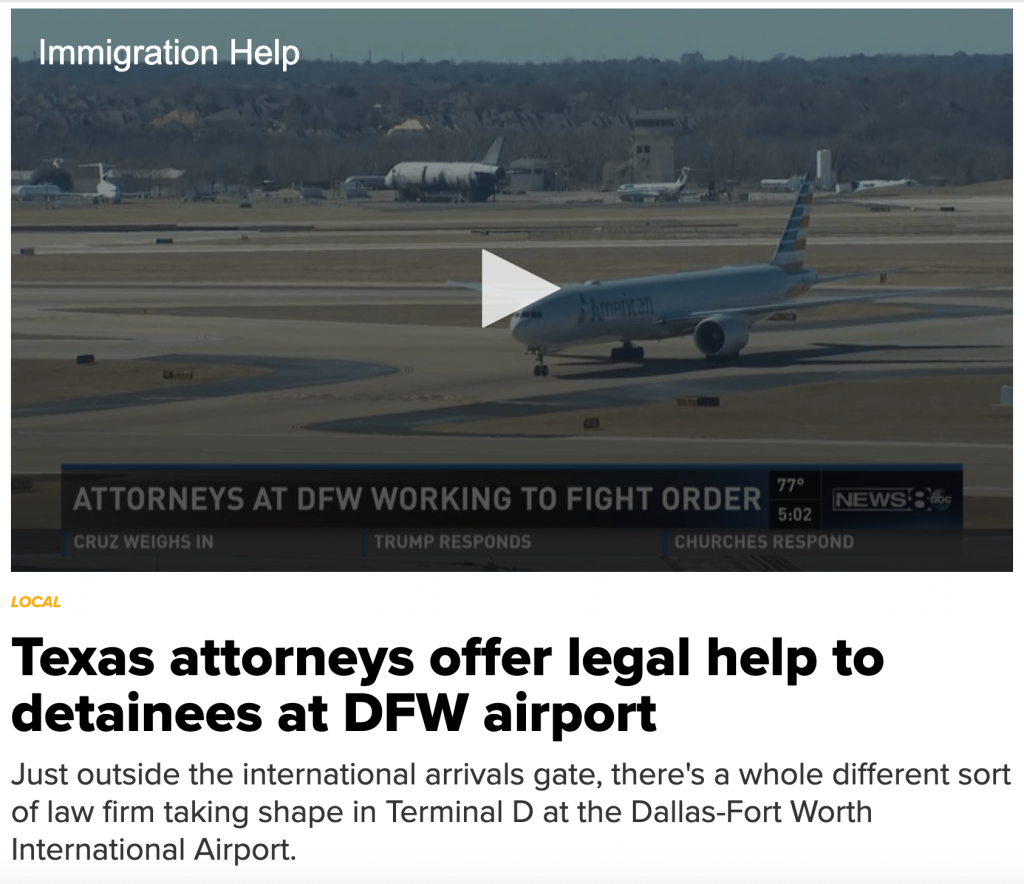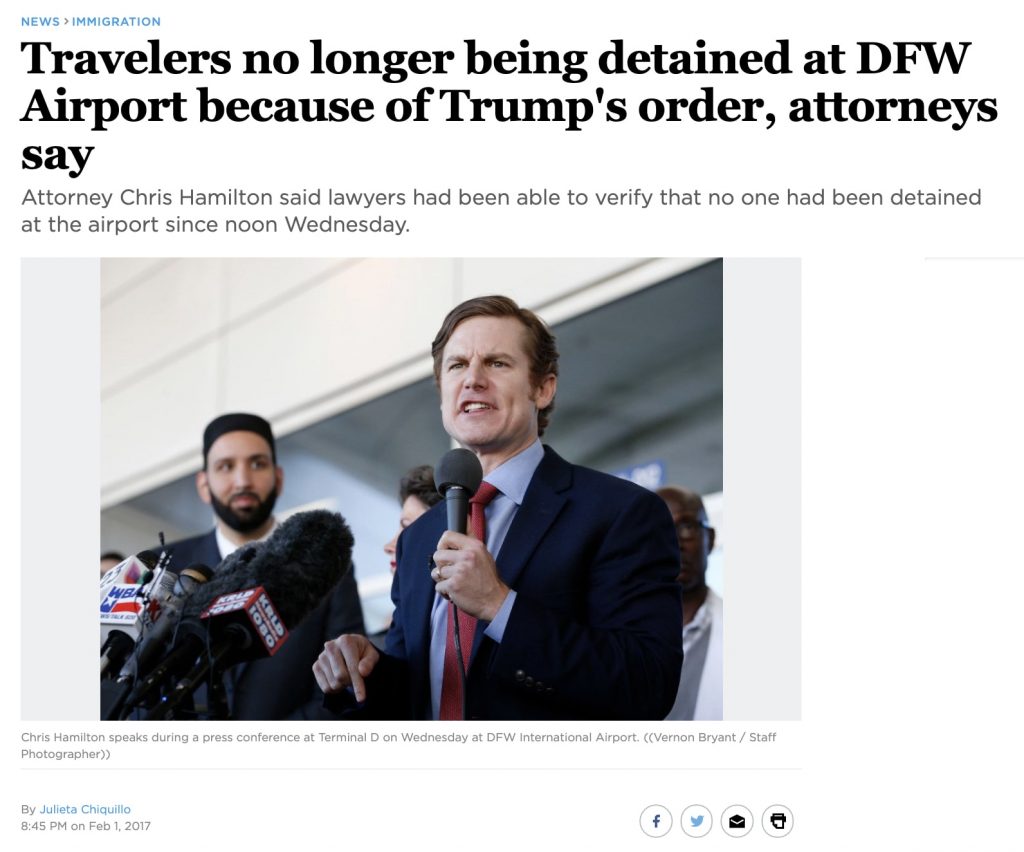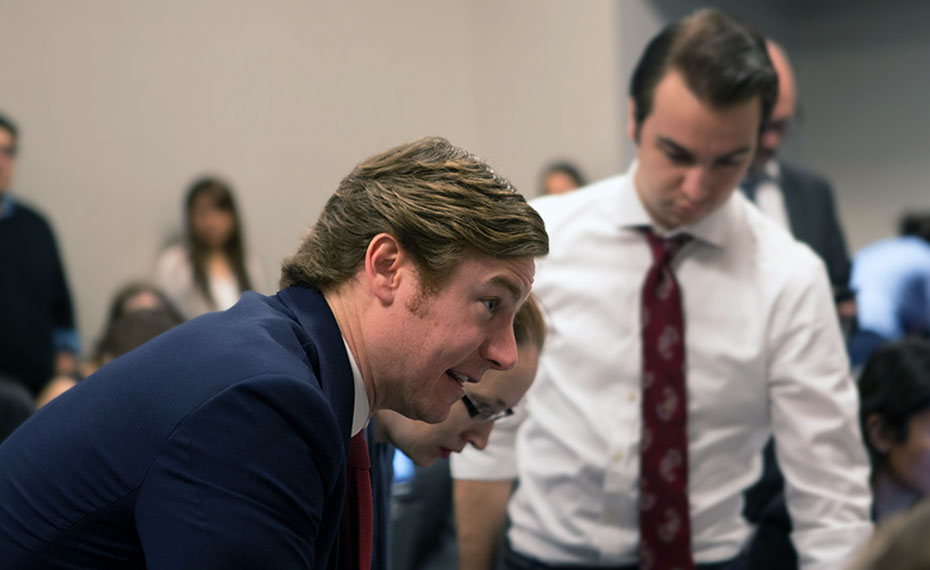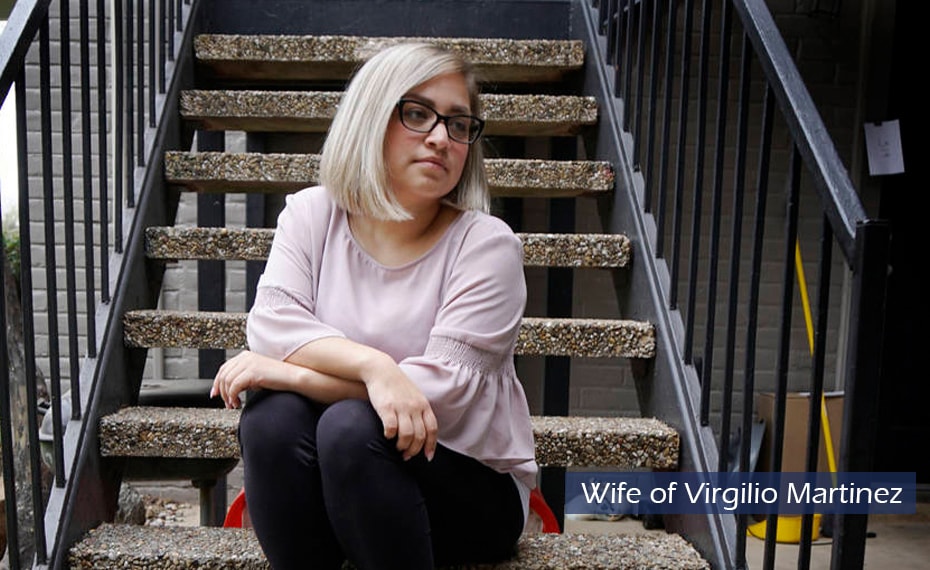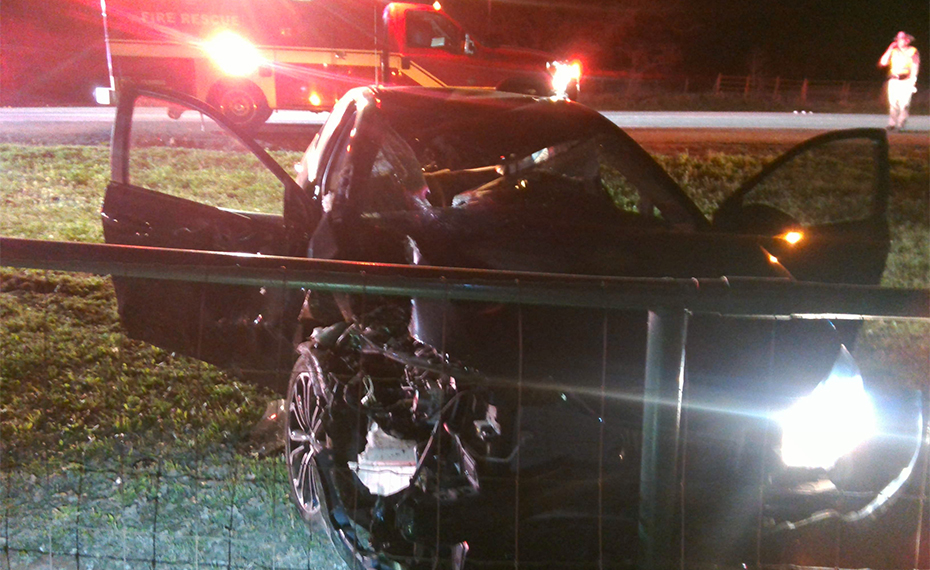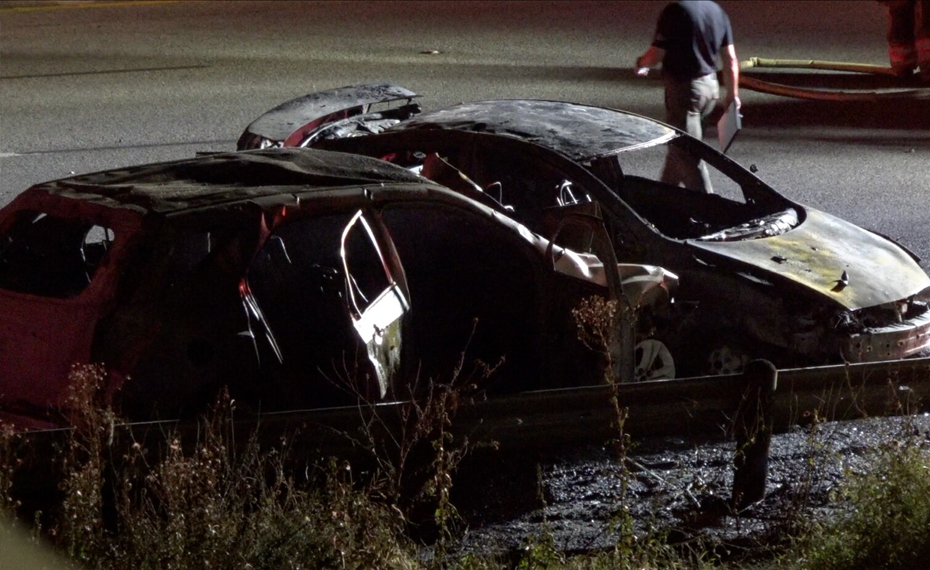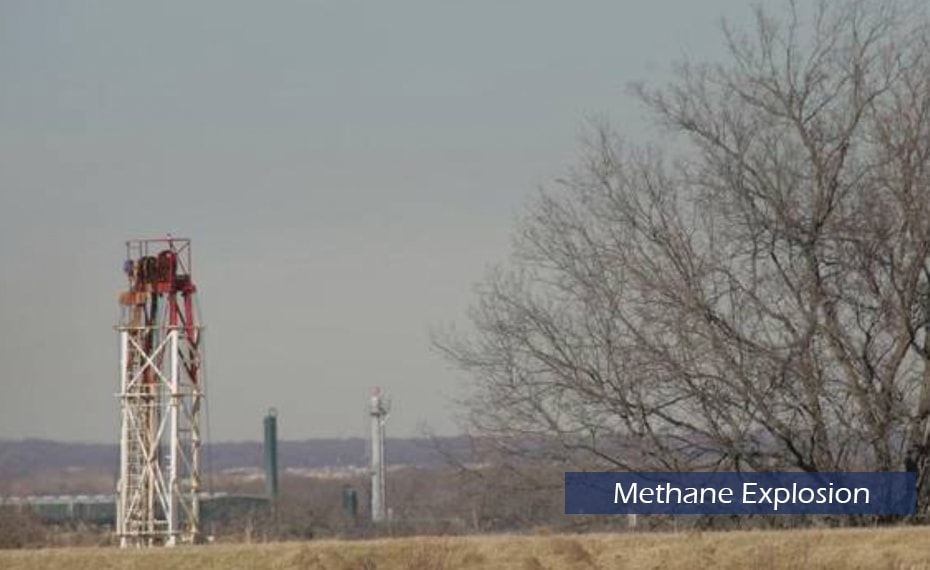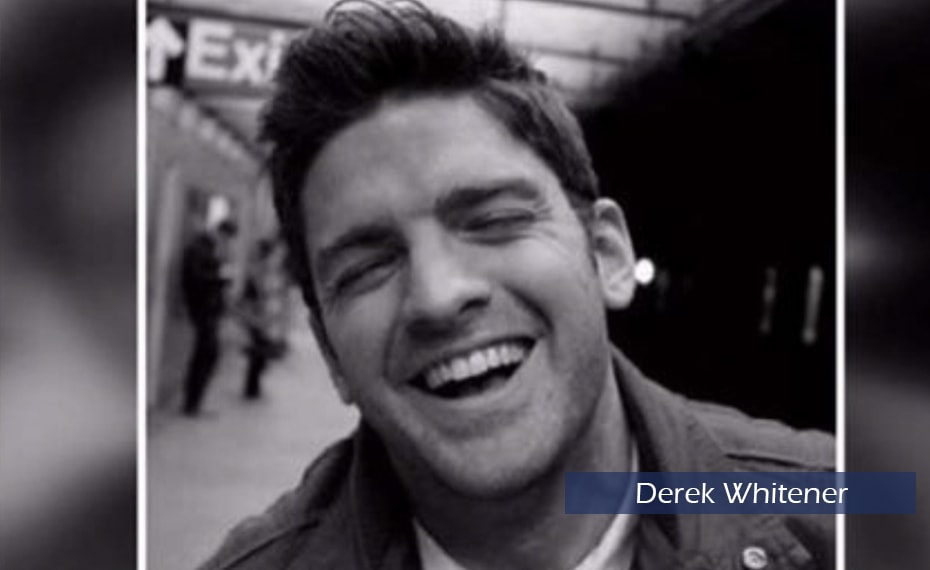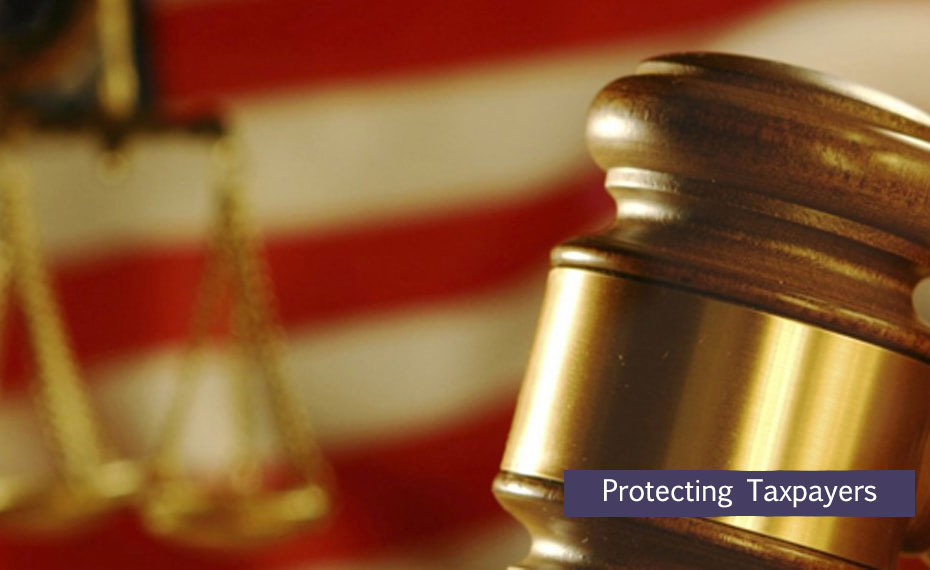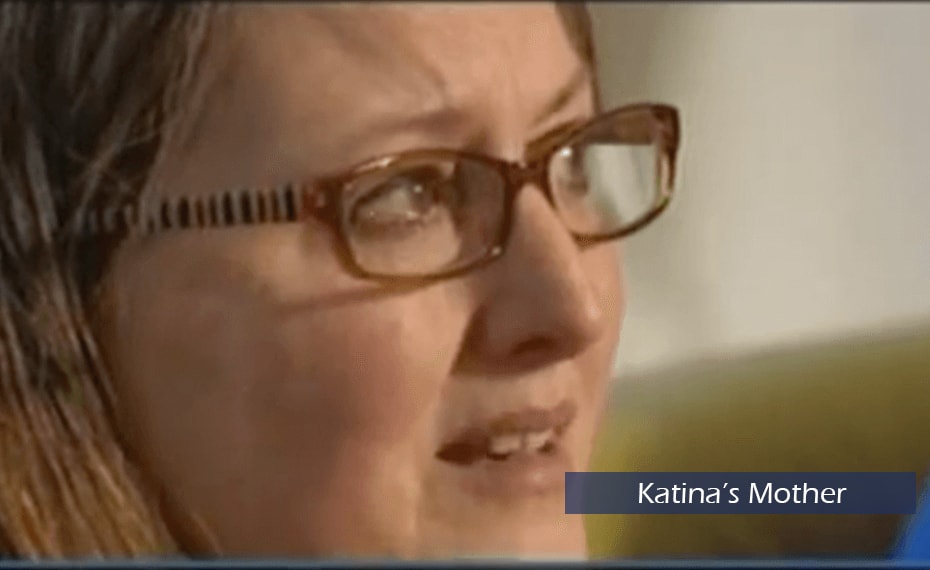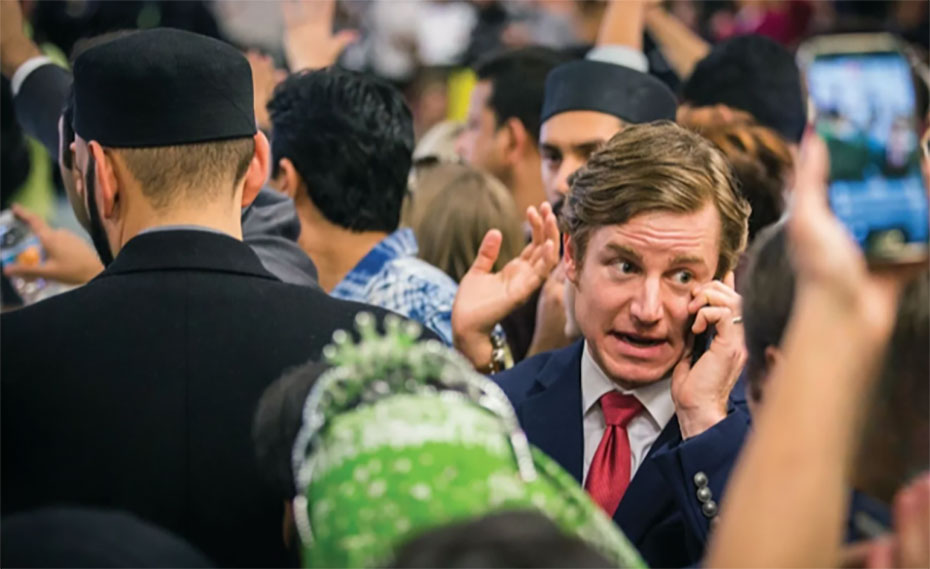
Defending the Constitution
When the Trump administration issued a ban on individuals from seven Muslim-majority countries from entering the United States, lawyers from all over the country mobilized to fight it.
Chris Hamilton and Paul Wingo were among dozens of attorneys inspired to take action after seeing the scenes of chaos unfolding in the nation’s airports.
“We have a situation in this country where are airports essentially were turned into a series of Guantanamos, where people are being held with no information regarding who’s being held and no access to counsel and that’s a huge problem,” Hamilton said.
“This is the first time I’ve ever felt that I just needed to heed the call of action,” says Paul Wingo. “This is the reason I got a law degree.”

Defending the Constitution
When the Trump administration issued a ban on individuals from seven Muslim-majority countries from entering the United States, lawyers from all over the country mobilized to fight it.
Chris Hamilton and Paul Wingo were among dozens of attorneys inspired to take action after seeing the scenes of chaos unfolding in the nation’s airports.
“We have a situation in this country where are airports essentially were turned into a series of Guantanamos, where people are being held with no information regarding who’s being held and no access to counsel and that’s a huge problem,” Hamilton said.
“This is the first time I’ve ever felt that I just needed to heed the call of action,” says Paul Wingo. “This is the reason I got a law degree.”
Rollout
Donald Trump signed Executive Order 13769, also known as the Travel Ban, on Friday, January 27, 2017. The order cut the total number of refugees entering the country in 2017 by more than half – from 110,000 to 50,000 – halted the U.S. Refugee Admissions Program for a period of 120 days so vetting standards could be assessed and revised, and placed a permanent hold on any Syrian refugees from entering the country. The ban affected those from seven Muslim-majority countries: Iran, Iraq, Syria, Libya, Yemen, Sudan, and Somalia.
The ban’s rollout was problematic to say the least. The executive order was signed on a Friday, which meant that information was difficult for officials to obtain over the weekend. Legal residents traveling outside the country when the ban went into effect found that they could not gain re-entry. Customs and Border Protection officials were detaining individuals who had done nothing wrong. Families were separated. Those seeking urgent medical care were unable to receive it.
Fighting Back
The backlash was immediate and nationwide. Thousands showed up at airports all over the country to protest the administration’s actions. Attorneys volunteered to help those who were being wrongfully detained. In Dallas, Chris Hamilton was at the forefront of this effort. Together with attorney Lisa Blue, he pledged the funds necessary to support a war room of about 150 attorneys that formed in a conference room at the Grand Hyatt hotel at DFW International Airport. Once assembled, they got to work.
Progress was slow. Because officials across the country were still struggling to interpret the administration’s new rules, solid information was hard to come by. Much of what Hamilton learned came from travelers at the airport and their families. Other officials spoke off the record. He learned that about 30 people were being held, although no official number was given. Travelers were being asked questions about their religion, and in some cases CBP officers were attempting to gain access to their social media accounts. Hamilton and the attorneys he worked with filed petitions asking that these individuals immediately be released.
MISSION ACCOMPLISHED
Their hard work paid off. On Wednesday, February 1, Hamilton took to social media to make the announcement. In a short video, he said, “We have verified today that folks are no longer being detained at DFW Airport since about noon today.”
Rollout
Donald Trump signed Executive Order 13769, also known as the Travel Ban, on Friday, January 27, 2017. The order cut the total number of refugees entering the country in 2017 by more than half – from 110,000 to 50,000 – halted the U.S. Refugee Admissions Program for a period of 120 days so vetting standards could be assessed and revised, and placed a permanent hold on any Syrian refugees from entering the country. The ban affected those from seven Muslim-majority countries: Iran, Iraq, Syria, Libya, Yemen, Sudan, and Somalia.
The ban’s rollout was problematic to say the least. The executive order was signed on a Friday, which meant that information was difficult for officials to obtain over the weekend. Legal residents traveling outside the country when the ban went into effect found that they could not gain re-entry. Customs and Border Protection officials were detaining individuals who had done nothing wrong. Families were separated. Those seeking urgent medical care were unable to receive it.
Fighting Back
The backlash was immediate and nationwide. Thousands showed up at airports all over the country to protest the administration’s actions. Attorneys volunteered to help those who were being wrongfully detained. In Dallas, Chris Hamilton was at the forefront of this effort. Together with attorney Lisa Blue, he pledged the funds necessary to support a war room of about 150 attorneys that formed in a conference room at the Grand Hyatt hotel at DFW International Airport. Once assembled, they got to work.
Progress was slow. Because officials across the country were still struggling to interpret the administration’s new rules, solid information was hard to come by. Much of what Hamilton learned came from travelers at the airport and their families. Other officials spoke off the record. He learned that about 30 people were being held, although no official number was given. Travelers were being asked questions about their religion, and in some cases CBP officers were attempting to gain access to their social media accounts. Hamilton and the attorneys he worked with filed petitions asking that these individuals immediately be released.
MISSION ACCOMPLISHED
Their hard work paid off. On Wednesday, February 1, Hamilton took to social media to make the announcement. In a short video, he said, “We have verified today that folks are no longer being detained at DFW Airport since about noon today.”

